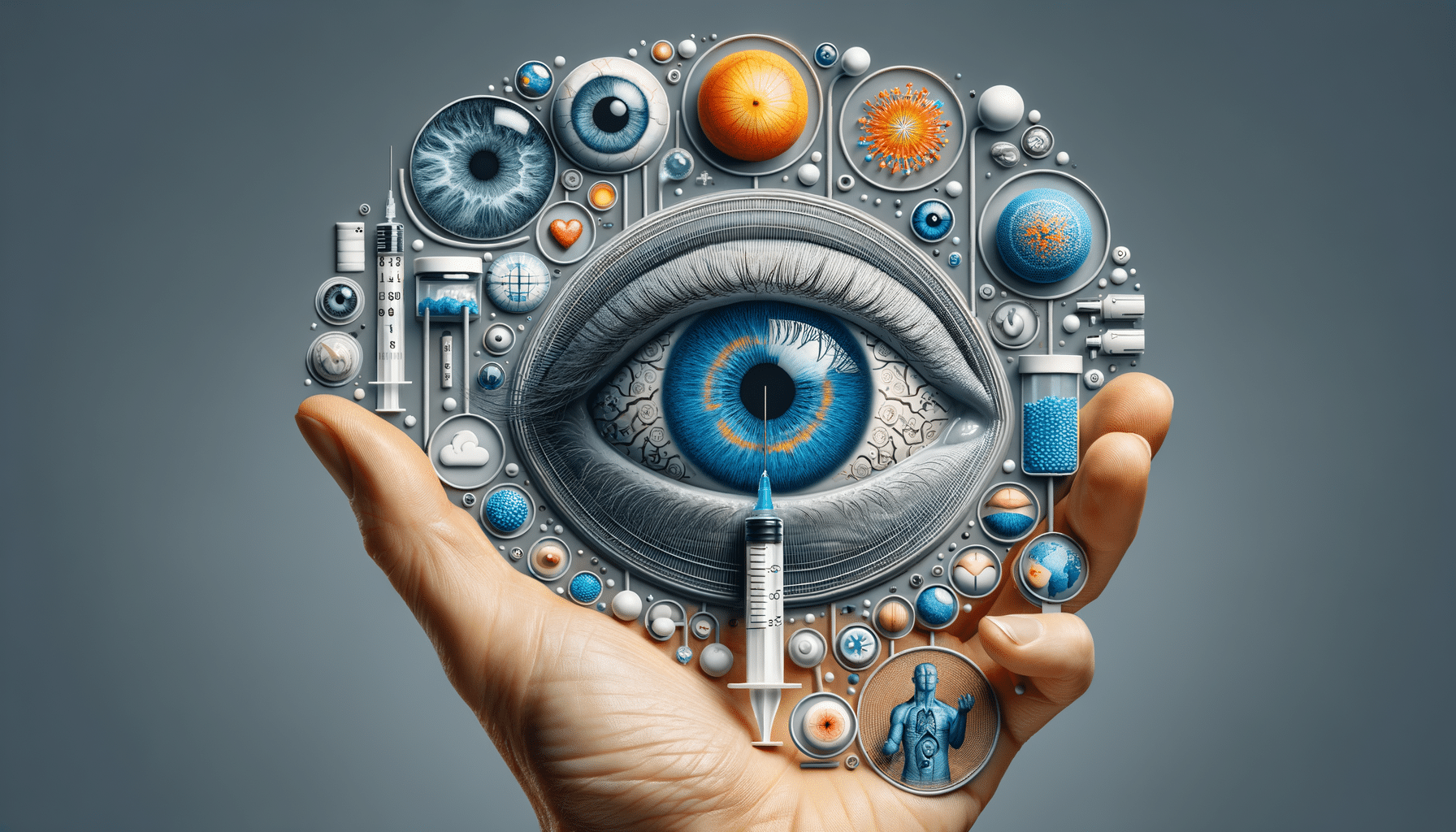
Understanding Macular Degeneration Shots: What to Know
Introduction to Macular Degeneration and Its Impact
Macular degeneration is a common eye condition that primarily affects older adults, leading to loss of central vision. This condition can significantly impact daily activities such as reading, driving, and recognizing faces. With the increasing aging population, understanding treatment options becomes crucial. Among these, macular degeneration shots have emerged as a prominent method for managing the condition.
Macular degeneration occurs in two forms: dry and wet. The wet form, although less common, progresses more rapidly and is often treated with injections. These shots are designed to slow the progression of the disease and, in some cases, improve vision. By targeting the underlying causes of vision loss, these injections offer hope to those affected by this challenging condition.
How Macular Degeneration Shots Work
Macular degeneration shots typically involve the injection of anti-VEGF (vascular endothelial growth factor) medications. VEGF is a protein that promotes the growth of abnormal blood vessels in the eye, leading to leakage and scarring. By inhibiting VEGF, these injections help prevent further damage to the retina.
The process involves a series of injections administered directly into the eye. Although this might sound daunting, the procedure is generally quick and performed under local anesthesia to minimize discomfort. The frequency of injections varies depending on the individual’s condition and response to treatment but often starts with monthly injections.
These injections have been shown to stabilize or improve vision in many patients. By reducing the growth of abnormal blood vessels, they help preserve the central vision crucial for daily tasks. Understanding how these shots work can alleviate concerns and encourage patients to adhere to their treatment plans.
Benefits and Risks of Macular Degeneration Shots
Macular degeneration shots offer several benefits, making them a valuable option for managing the condition. They can slow the progression of vision loss, and in some cases, improve visual acuity. This is particularly important for maintaining independence and quality of life.
However, as with any medical procedure, there are potential risks and side effects. These may include discomfort at the injection site, increased eye pressure, or, in rare cases, infection. Patients should discuss these risks with their healthcare provider to make an informed decision.
Despite the risks, many patients find that the benefits outweigh the potential downsides. Regular monitoring and communication with a healthcare provider can help manage any adverse effects and ensure the effectiveness of the treatment.
What to Expect During the Treatment Process
Understanding what to expect during the treatment process can help alleviate anxiety and improve adherence to the regimen. The procedure is typically performed in a doctor’s office and takes only a few minutes.
Before the injection, the eye is numbed with anesthetic drops. The doctor will then use a fine needle to inject the medication into the vitreous cavity of the eye. Patients might experience slight pressure but should not feel pain. After the injection, the eye may be covered with a patch temporarily to protect it.
Patients are usually advised to avoid strenuous activities for a short period after the injection. Follow-up appointments are crucial to monitor the eye’s response to the treatment and adjust the frequency of injections as needed.
Long-term Management and Lifestyle Considerations
While macular degeneration shots can effectively manage the condition, long-term management involves more than just medical treatment. Patients are encouraged to adopt a healthy lifestyle to support eye health.
- Maintain a balanced diet rich in leafy greens, fish, and nuts, which are beneficial for eye health.
- Avoid smoking, as it can exacerbate the progression of macular degeneration.
- Regular eye exams are essential to monitor changes and adjust treatment plans as necessary.
Incorporating these lifestyle changes can complement the effects of macular degeneration shots and contribute to overall well-being. By taking a proactive approach, individuals can better manage their condition and maintain their quality of life.


